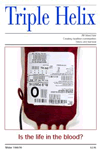The words 'Trust me, I'm a doctor' may no longer reassure doubting patients, yet one recent survey suggests that 75% of UK 16-21 year olds continue to hold the medical profession in the greatest respect. This millennial generation is found to value personal honesty and caring above ambition and independence. However, these young people are sceptical both of politicians, as a group, and of the power and effectiveness of governments. This is the tax-paying generation who will pay for our medical care and old age, unless of course they change the rules.
The Changing Face of Health Care ponders questions of how to provide for the USA's health needs, both present and future. It brings together 22 essays written by those who participated in a conference held in 1997. Currently, there is a shift in the USA to a system of controlling cost by managed health care. The focus of the book is therefore, inevitably, on rationing and how to make sense of it, and its authorship is both overtly Christian and multiprofessional in nature. The book deals exclusively with one country's system of health care, how it has developed and where it might be going. A thoughtful afterview, by the British public health physician and ethicist Stuart Horner, provides a helpful perspective on the issues within the book for the non-American reader.
So, should we still trust doctors? Robert Orr paints a picture of new medical graduates swearing ethical oaths, but these are post-Hippocrates and post-modern and place less emphasis on protecting the vulnerable. Are nurses better placed? Both Barbara White and Judith Allen Shelly raise the spectre of over-stretched nurses unable to perform their caring vocation whilst being forced to cut corners. Compromising professional values is also a risk for administrators, although William Atkinson is robust in defending a middle way between profit and professionalism, between idealism and realism. As he points out, bad health care is also bad business!
Ultimately, this book must be judged on its handling of the ethical questions that surround managed care, resource allocation, and the subject of rationing. Rationing means different things depending on your geographical perspective. From the UK perspective, a country which disenfranchises 41 million of its subjects from full participation in its health care system looks unhealthy. From the US perspective, waiting lists and black-listed drugs provoke similar feelings. Governments the world over are grappling with cost containment, quality improvement, and fairer systems of access to health care, not least through an emphasis on primary care.
This book gives much food for thought on these matters, not least on how to meet the needs of the most marginalised in our societies - the poor, the old, the mentally ill, and those from the ethnic minorities. The 'Good Samaritan' receives two thoughtful essays. Economist Kenman Wong suggests that the Samaritan might just have coped with the business ethics of a first century managed care organisation. Bioethicist Edmund Pellegrino isn't so sure. Perhaps you should buy the book and decide for yourself.
Reviewed by
Jamie Harrison
(GP Tutor, Durham)































